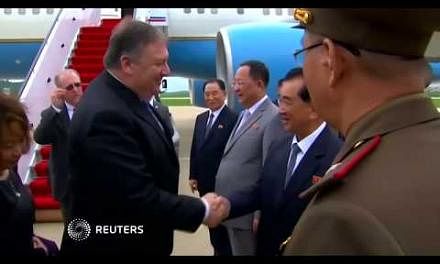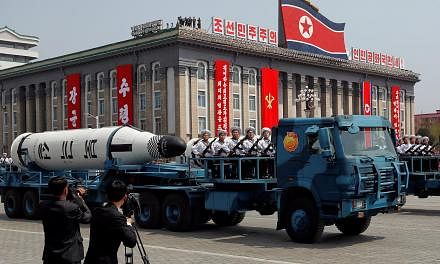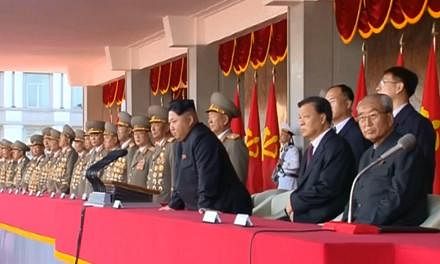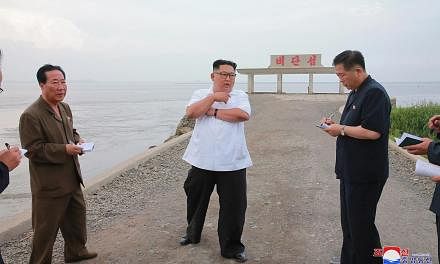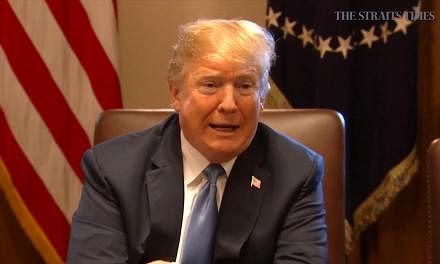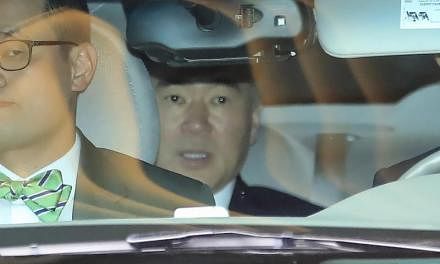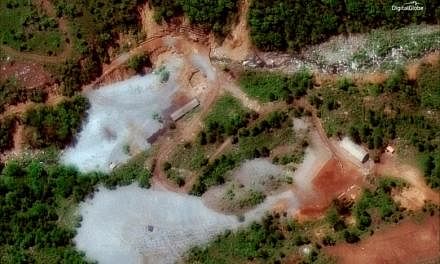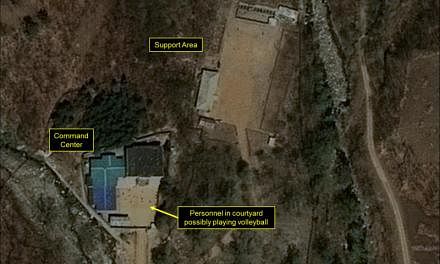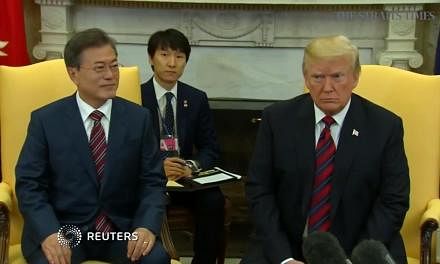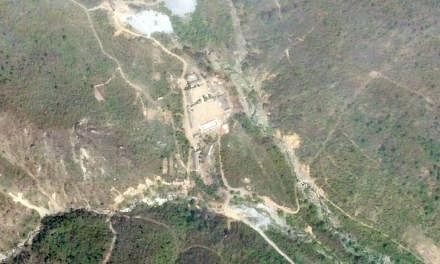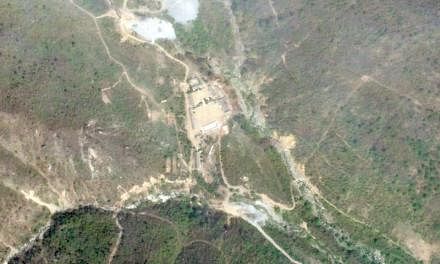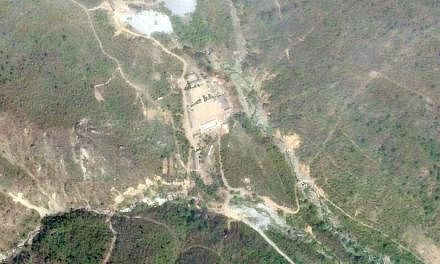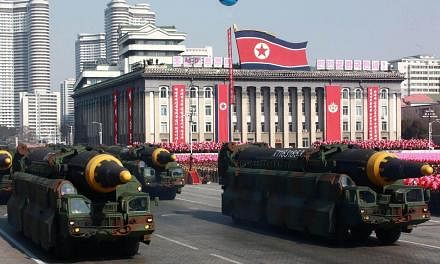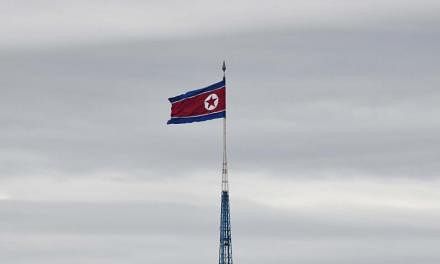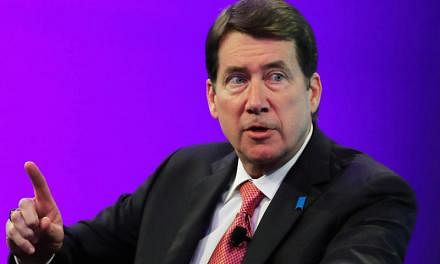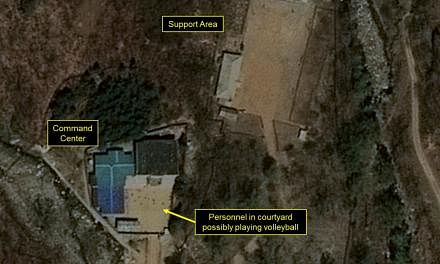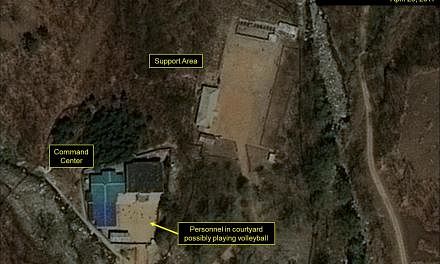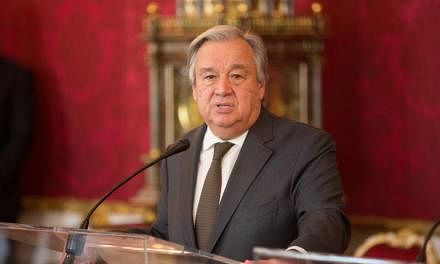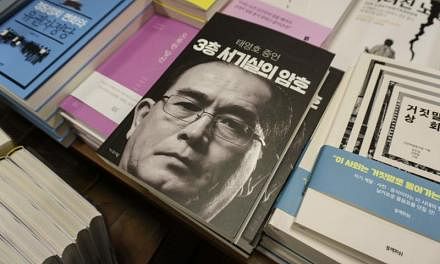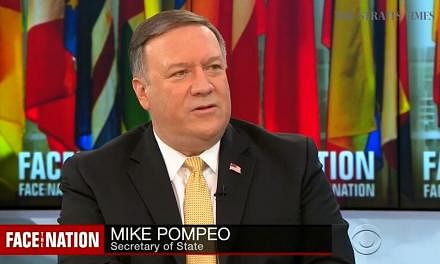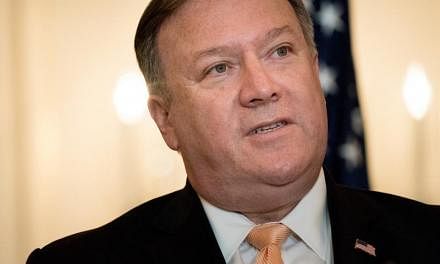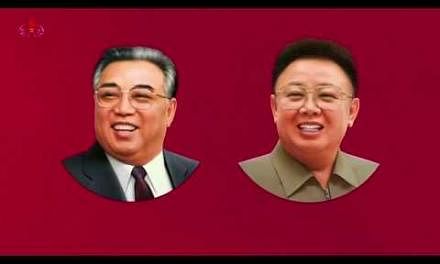WASHINGTON - The United Nations Security Council (UNSC) has approved a new, wider round of sanctions on North Korea - but watered down from an original draft by the United States which had sought a stop to fuel shipments and the right to arbitrarily board and inspect ships plying in and out of North Korean ports.
The sanctions further squeeze North Korea, but stop short of choking off the regime's economic lifelines - leaving the US a problem to be managed rather than resolved the way Washington would prefer, according to analysts.
After the UN Security Council vote, US Ambassador to UN Nikki Haley said: "We are done trying to prod the regime to do the right thing. We are now acting to stop it from having the ability to continue doing the wrong thing. We are doing that by hitting North Korea's ability to fuel and fund its weapons program. Oil is the lifeblood of North Korea's effort to build and deliver a nuclear weapon."
Britain's ambassador to the UN told reporters: "The version on the table is strong, it is robust, it is a very significant set of additional sanctions on imports into North Korea and on exports out of North Korea and other measures as well."
But the watering down reflected concerns from China and Russia which have advocated dialogue, maintaining that sanctions will not work to force North Korea to stop its nuclear missile programme.
Reflecting this, the resolution called for the standoff to be resolved through "peaceful, diplomatic and political means."
The new sanctions ban textile imports from North Korea, prohibit the sale of natural gas to the regime, and sets a cap of two million barrels per year for refined petroleum sales to Pyongyang.
Stopping fuel shipments altogether would have a severe impact on North Korea, including certain hardship for its population on the brink of a cold winter.
The resolution agrees to ship inspections but stipulates that they should be done with the consent of the countries where the ships are registered.
The resolution also diluted original language that would have banned the use of North Korean labour altogether. Russia reportedly uses considerable North Korean labour.
"The final resolution is less than the Trump administration initially proposed, demonstrating the difficulties of negotiating with North Korea's chief sanctions enablers, China and Russia," Anthony Ruggiero, Senior Fellow Foundation for Defense of Democracies told The Straits Times in an email.
Nevertheless, the new resolution was an important step forward and the US should focus on its implementation, he wrote.
"The US should implement its proposal for inspections of North Korea-related vessels, including boarding on the high seas, through the creation of a group of likeminded countries (South Korea, Japan, Australia, UK, France, and Germany) committed to reducing North Korea's revenue and prohibited activities," he said.
The New York Times quoted Daryl G. Kimball, Washington-based executive director of the Arms Control Association, as saying "There's no only-sanctions strategy that will bring the North Koreans to heel."
"It has to be paired with a pragmatic strategy of engagement. But those talks are not yet happening."
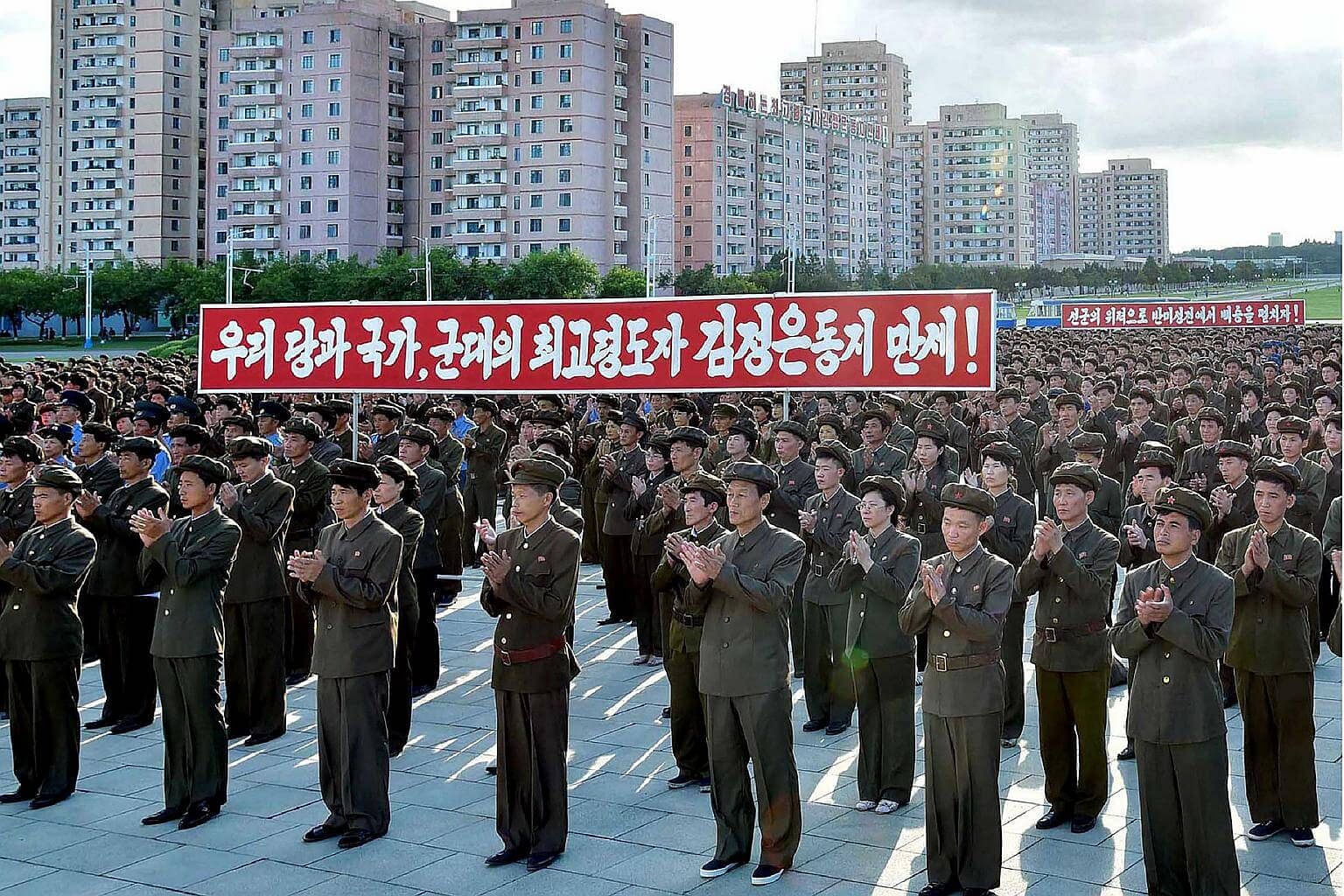
Sue Mi Terry, a former Central Intelligence Agency analyst now with BowerGroupAsia, told The Straits Times: "The larger picture is the US is still stuck with very limited options."
"There are people in the administration who are trying to get Trump to move down to a deterrence and containment policy for the long term," she said.
"That doesn't mean we have to say we accept North Korea as a nuclear weapons power," she said. "It means we continue with sanctions - potentially secondary boycotts of Chinese banks - and with missile defence; that is we continue with what we are doing."
"But in the end we are letting North Korea acquire this (nuclear missile capability) because we are taking the military option off the table," she said.
Earlier on Monday ahead of the vote in the Security Council, North Korea's Ministry of Foreign Affairs in a statement called the resolution illegal and unlawful and North Korea was "ready and willing to use any form of ultimate means" against the US.
"The forthcoming measures to be taken by the DPRK will cause the US the greatest pain and suffering it had ever gone through in its entire history" the ministry said.
Separately, a Kyodo News report on Monday said at least three major state banks - the Bank of China, China Construction Bank and Agricultural Bank of China - in the north-eastern border city of Yanji had banned North Koreans from opening accounts, or making deposits and remittances.
The agency quoted a bank employee saying "This is being influenced by international sanctions against North Korea."


